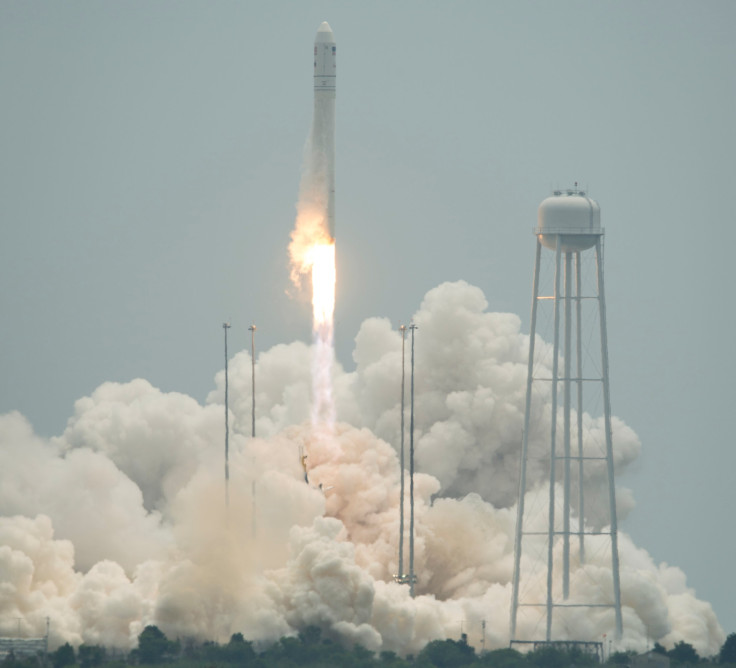NASA Cargo Spacecraft Lifts Off For Space Station Aboard Orbital Sciences’ Antares Rocket

A new set of NASA cargo, including crew provisions, hardware, research studies and science experiments from around the U.S. blasted off for the International Space Station, or ISS, on Sunday, aboard Orbital Sciences Corp.'s (NYSE:ORB) Cygnus spacecraft.
The cargo ship was launched aboard Orbital's Antares rocket from NASA's Wallops Flight Facility in Virginia at 12:52 p.m. EDT, the space agency said, adding that it was Orbital’s second cargo delivery flight to the station under a $1.9 billion Commercial Resupply Services, or CRS, contract with NASA.
“Today’s mission was the fourth successful launch of Antares in the past 15 months and the third deployment of Cygnus in less than a year,” David W. Thompson, Orbital’s president and CEO, said in a statement.
According to Orbital, the Cygnus cargo logistics spacecraft will dock with the ISS on July 16 at approximately 6:39 a.m. EDT. The mission will deliver 3,669 pounds of cargo to the Expedition 40 astronauts and will remain attached to the space station for nearly 30 days before returning to Earth with approximately 2,950 pounds of disposable cargo.
Under the CRS contract with NASA, Orbital’s Antares and Cygnus will deliver nearly 44,000 pounds of cargo to the ISS over eight missions through 2016. For these missions, NASA will list out a variety of essential items based on the ISS program's needs, including food, clothing, crew supplies, spare parts and equipment, as well as scientific experiments, according to Orbital Sciences.
Orbital Sciences is one of two companies that NASA has hired after the agency's space shuttles stopped flying cargo to the ISS. The other company, called SpaceX, delivered cargo in April, Discovery News reported, adding that NASA is paying the companies a total of $3.5 billion for these resupply missions.
© Copyright IBTimes 2024. All rights reserved.






















